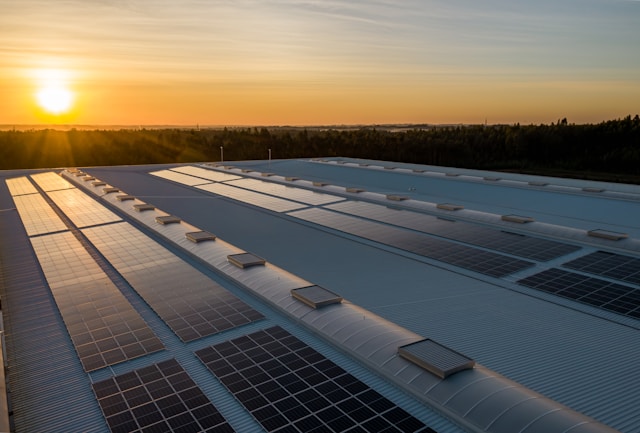Brazil’s solar energy sector is surging, powered by abundant sunlight and a bold vision for sustainability. Strategic partnerships and affiliate networks are the backbone of this growth, connecting cutting-edge green tech with communities across the nation. From sprawling solar farms to rooftop panels, these collaborations spark innovation and opportunity for businesses, households, and rural areas. Let’s dive into how Brazil’s solar expansion thrives through partnerships, affiliate strategies, and a commitment to a greener future.
Why Is Brazil a Solar Power Leader?
Brazil’s geography is a solar powerhouse, with regions like Bahia, Minas Gerais, and São Paulo soaking up some of the world’s highest solar irradiation. By 2024, the country’s solar capacity reached 32 gigawatts, lighting up millions of homes, according to ABSOLAR. Government policies, including tax exemptions and net metering, make photovoltaic systems attractive for investors and homeowners alike. Solar panel prices have dropped nearly 80% over the past decade, opening doors for urban apartments and rural farms. As Brazil seeks to diversify from hydropower, which falters during droughts, solar stands out as a reliable, scalable solution. This blend of natural advantages, economic incentives, and a national push for green energy cements Brazil’s role as a solar leader, fueled by strategic alliances.
How Do Partnerships Drive Solar Expansion?
Partnerships are the heartbeat of Brazil’s solar boom. The government collaborates with global bodies like the International Renewable Energy Agency (IRENA) to fund large-scale solar projects, bringing world-class expertise and financing to local markets. Private companies join forces with international tech giants to roll out smart grids and high-efficiency panels. For example, local utilities partner with European manufacturers to supply advanced photovoltaic systems, boosting energy output. In rural areas, community cooperatives pool resources to install shared solar setups, cutting costs for families and small businesses. These alliances create a win-win: global firms access Brazil’s growing market, while local stakeholders gain technical know-how and funding. This synergy transforms Brazil’s energy landscape into a model of sustainable progress.
What Role Do Affiliate Networks Play?
Affiliate networks are reshaping Brazil’s solar scene by bridging tech providers and consumers. Through blogs, social media, and local events, they promote solar solutions, from rooftop panels to portable chargers. G.Partners excels in this space, designing campaigns tailored to Brazil’s diverse regions. Affiliates share compelling stories, like farmers slashing costs with solar irrigation, earning commissions while driving sales. In 2023, affiliate campaigns boosted urban solar installations by 17%, according to industry data. By tapping into Brazil’s digital-savvy population, these networks turn curiosity into action, making solar power a household name and a practical choice for everyday life.
Benefits of Affiliate Networks in Solar Growth
Affiliate networks amplify Brazil’s solar expansion with clear, impactful advantages:
| Benefit | Description |
| Broad Reach | Affiliates use digital platforms and local events to connect with diverse groups, from city dwellers to rural farmers. |
| Cost-Effective Scaling | Companies save on marketing, paying affiliates only for successful sales, maximizing budget efficiency. |
| Regional Relevance | Campaigns target local needs, like affordable solar for small businesses in the Northeast, ensuring cultural fit. |
| Faster Adoption | Real-world success stories, like lower energy bills, build trust and encourage quicker purchases. |
| Exponential Growth | Growing networks create a ripple effect, amplifying solar uptake across urban and rural Brazil. |
These benefits transform isolated sales into a nationwide movement, embedding green tech into Brazil’s energy culture and driving sustainable progress.
How Can Affiliates Shape Brazil’s Solar Future?
Affiliates are poised to steer Brazil’s solar future by promoting innovation and accessibility. They can spotlight emerging technologies, like solar-powered electric vehicle charging stations, through trusted local voices. Key opportunities include:
- Educating farmers on solar irrigation via community influencers, showcasing cost savings.
- Promoting tax incentives for solar to small businesses in urban hubs like São Paulo.
- Sharing stories of schools using solar to power classrooms, inspiring broader adoption.
- Highlighting financing options, like low-interest loans, to make solar accessible to all.
Brazil aims to double its solar capacity by 2030, per the National Energy Plan. Affiliates can accelerate this by connecting consumers with practical solutions, ensuring green tech becomes a cornerstone of Brazil’s energy future. Their role is like sunlight hitting a perfectly angled panel: maximizing impact with minimal waste.
What Challenges Do Affiliates Face in Brazil’s Solar Market?
Affiliates face hurdles in Brazil’s diverse market, but these challenges are surmountable. Limited awareness in rural areas can slow adoption, as some communities lack exposure to solar benefits. Language and cultural differences across regions demand tailored campaigns, which require extra effort. Additionally, competition among affiliates is fierce, with many vying to promote similar products. To overcome these, affiliates can focus on hyper-local content, like success stories from nearby towns, and leverage platforms like G.Partners for market insights. By addressing these obstacles, affiliates can turn challenges into opportunities, driving solar growth even further.
How Do Affiliates Enhance Community Engagement?
Affiliates excel at fostering community trust, a critical factor in Brazil’s solar expansion. They engage audiences by sharing relatable stories, like a small business owner in Recife cutting electricity costs with solar panels. Through social media and local workshops, affiliates create dialogue, answering questions about installation or financing. They also partner with community leaders to host solar demonstrations, showing tangible benefits. This grassroots approach builds confidence, encouraging more Brazilians to embrace solar. By acting as trusted advocates, affiliates transform communities into active participants in Brazil’s green energy revolution, ensuring long-term impact.
